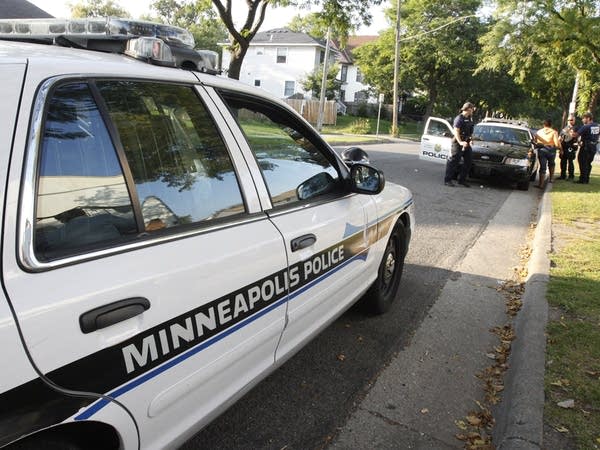Mpls. City Council revamps police misconduct review system

Civilian oversight of the police is changing in the city. Supporters say it will be more efficient. Critics say it takes the 'civilian' out of 'civilian review.
The Minneapolis City Council voted 8-5 Friday to reform the 20-year-old Civilian Review Authority and Board into what will now be called the Office of Police Conduct Review.
More than just a name change, the most controversial part of the new system involves the investigation process. At least seven sworn police officers from the Internal Affairs Unit will be available to investigate allegations of misconduct. Only two civilian employees from the Civil Rights Department will handle investigations. Complainants will not know if their case will be handled by a police officer or a civilian investigator. However, all allegations of criminal misconduct against an officer are automatically assigned to Internal Affairs.
The most vocal opponent of the new model, Minneapolis City Council member Cam Gordon, has proposed several changes. He has advocated for giving the option of choosing a civilian investigator to people who don't believe the police department can fairly investigate itself. However, he scaled back that demand and successfully offered an amendment that gives a person the ability to request that someone who is not a police officer handle his or her case.
Create a More Connected Minnesota
MPR News is your trusted resource for the news you need. With your support, MPR News brings accessible, courageous journalism and authentic conversation to everyone - free of paywalls and barriers. Your gift makes a difference.
"It may be that only four or five percent of the cases request this," Gordon said. "But at least there's an alternative out there for those four or five who really want to make sure that they get civilian review on this."
A sponsor of the ordinance on the new oversight system, Councilmember Don Samuels, said he is concerned about Gordon's amendment.
"If you have someone give someone the option of choosing between a police officer and a civilian, it's almost certain that almost all people are going to choose a civilian," Samuels said.
He contends that would overburden the civilian investigators and continue the logjam of cases that have historically plagued the civilian review process.
Under the new system, after a case is investigated the findings are presented to a four-person review panel. Two of the reviewers will be civilians chosen from a pool of volunteers. The other two panel members will be police officers ranking lieutenant or higher. Samuels he believes this panel composition will encourage thoughtful discussion between police and civilians.
Gordon had offered an amendment to add a third civilian as a way to bring more balance to the decision-making process. But that was voted down.
The panel will send its findings to the police chief who makes the final determination and decides what, if any, discipline should be administered.
Dave Bicking, a former member of the Civilian Review Authority, said while he was on the board, Minneapolis Police Chief Tim Dolan was reluctant to follow any findings or recommendations from them. Bicking said he does not expect much will change under the new system.
"I have hope that someday we will have a police chief who would be influenced by anything," Bicking said. "Frankly, he's not influenced by it when there's three civilians and no police officers on it and that comes to a clear conclusion."
Dolan has responded to critics like Bicking, saying many of the reviewed cases were minor infractions from prior years. Dolan has said the department could not discipline officers in these cases because they could violate terms of the city's labor agreement with the police union.
Bicking agrees that changes in the civilian review process were needed, but says this new system goes too far. The best way to foster citizen trust of the department, he said, is to make civilian review more independent. But supporters of the new Office of Police Conduct Review say they believe people will begin to trust the system more when their complaints are addressed in a more timely way.
